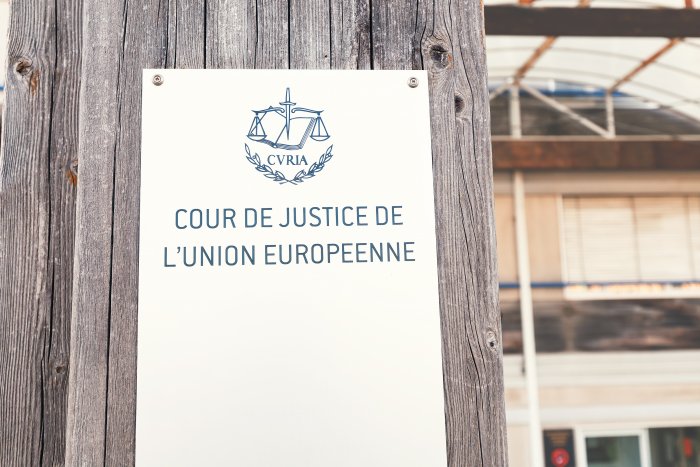Hungary M&A Deals Double in Value Last Year, 2021 Pipeline Looking Strong

Balázs Sahin-Tóth
Although the value of mergers and acquisitions deals globally fell by 8% last year as uncertainty over the COVID-19 pandemic gripped markets, Hungary had an outstanding 12 months, with deals doubling to total more than USD 1.1 billion, up from USD 530 million in 2019, according to law firm Allen & Overy’s Insights Q4 2020 report.
The Hungarian figures were boosted by some large deals across Central European jurisdictions, including the sale of Goodman’s real estate portfolio for a purchase price of some EUR 1 bln and another involving Aegon’s insurance and pensions portfolio for EUR 830 mln, Balázs Sahin-Tóth, counsel with Allen & Overy in Budapest, told a professional audience online from the Hungarian capital on February 11.
After the event, the Budapest Business Journal talked to Sahin-Tóth to probe deeper into the whys and wherefores of M&A last year, and what the market expects in 2021.
BBJ: As you stated, the CEE region accounted for just under USD 14.5 bln of the European M&A total last year. Within this, transactions involving Hungarian assets doubled to over USD 1.13 bln in 2020. Although small in absolute terms globally, this seems an amazing figure for Hungary. What’s behind this?
Balázs Sahin-Tóth: It is thanks to big-ticket deals, such as the Aegon, Goodman and SVEA [a debt collection company] sales. This might be just sheer luck. We don’t see any specific reasons why Hungary would excel on M&A. That is, apart from the good tax regime, but that was not the driver behind these deals.
BBJ: Regarding the Goodman and Aegon deals, could you say what values the Hungarian components of these deals were?
BST: No, as these are confidential data. [Editor's note: see Addendum]
BBJ: In your press material, you say that within Europe, CEE saw some of the least competitive deal conditions during 2020, with only 33% transacted through an auction process, and no deals at all highly competitive. How do you define “highly competitive” here?
BST: By “highly competitive” we mean that there was more than one bidder at the final stage of the auction process.
BBJ: And why has this trend begun? Is it simply too few buyers? If so, why, especially when the value of deals has doubled?
BST: Because sellers have been more focused on finding the right buyer and started bilateral discussions. The costs of a bilateral deal are lower and as these are conducted privately, so the reputational risk is lower if the sale fails.
BBJ: You said “dealmakers in CEE also seemed more content with deal conditions, with only 53% of deals highly conditional, versus a Western European average of 77%.” Could you explain this in layman’s terms? Does “dealmakers” here mean the buyers, or both sides?
BST: Dealmakers refers to both the seller(s) and buyer(s). This means that in the CEE, only mandatory regulatory approvals, that is from the competition office, national bank or a ministry, are accepted as conditions precedent to completion. Elsewhere, there are additional conditions, such as the buyer finding bank financing, repeated warranties being true and accurate as at completion, etc.
BBJ: What does it mean that in CEE “only 53% of deals are highly conditional”? Why is this? It seems that buyers in CEE trust the deal making process more than in Western Europe. Surely, given the less mature markets here, they should be more cautious?
BST: My guess is that the targets that were sold, for example Aegon, were very attractive to the buyers. For example, insurance as a sector has been boosted due to COVID. CEE is also a growth market compared to Western Europe, as it gives higher yields. Hence, buyers were willing to take more risks. Ultimately, probably this is a [case of] high risk-high reward economics.
BBJ; You also stated: “Few of them required price adjustments, with just 21% of deals in 2020 requiring this, versus 46% in Western Europe.” What are these “price adjustments”, are these retroactive, i.e. after the deal is signed and the buyer demands changes because the acquisition is not what he thought?
BST: No, price adjustment means that completion accounts are prepared as of the date of completion, to see what is really in there, in the target company, when it changes hands. Based on various financial metrics, the price can go up and/or down. This is agreed in the share sale and purchase agreement.
BBJ: In which case, what does this difference tell us? Does it mean that CEE deals are “cleaner”, or is it that buyers simply don’t trust the courts, don’t want to turn to them even if the assets are not what they were led to believe?
BST: As above, buyers are willing to take more risks against a hope for higher yield on their investment.
BBJ: Citing last year’s biggest deals, you say these show that CEE can deliver sizeable transactions, and this trend is likely to continue into 2021. Indeed, you say you are working on several new deals. Do these involve Hungary? Could you say something about the sectors involved?
BST: Yes, Hungary is affected. We are working on an IT, a TMT [Technology, Media and Telecom] deal, but it is highly confidential.
BBJ: Apart from those mentioned, are there sectors in which you expect to see significant M&A action in Hungary in 2021-2022?
BST: Yes, plus all other sectors which are in financial distress; i.e. distressed M&A will increase, for example in hospitality, hotels and cinemas.
BBJ: Last year, Allen & Overy noted regulatory uncertainty was holding back deals, globally and in Hungary and CEE, especially in sectors like green energy and healthcare. Have these regulatory issues been addressed at all in the past 12 months?
BST: Not really, the business risk remains the same. Government can change the support schemes and this would upset any business plan. In other words, a high exposure to government regulation that may change is, and remains, a high business risk.
BBJ: Allen & Overy seems to have had a fair chunk of the M&A work in the past 12 months. You were involved in the Aegon, Goodman and SVEA transactions. Have your staffing levels changed as a result?
BST: Our staffing levels have not materially changed. We have lean and flexible teams who can be deployed on any incoming new transaction. In the CEE, lawyers are more generalists than in mature markets, meaning we can move from one sector to the other, from one type of deal to another.
Addendum
Hungarian website Telex.hu reported that of the EUR 830 mln in the Aegon deal, EUR 549.5 mln was allocated to the Hungarian business and that in the Goodman sale, of the EUR 1 bln purchase price, EUR 168.5 mln went to Hungary.
This article was first published in the Budapest Business Journal print issue of February 26, 2021.
SUPPORT THE BUDAPEST BUSINESS JOURNAL
Producing journalism that is worthy of the name is a costly business. For 27 years, the publishers, editors and reporters of the Budapest Business Journal have striven to bring you business news that works, information that you can trust, that is factual, accurate and presented without fear or favor.
Newspaper organizations across the globe have struggled to find a business model that allows them to continue to excel, without compromising their ability to perform. Most recently, some have experimented with the idea of involving their most important stakeholders, their readers.
We would like to offer that same opportunity to our readers. We would like to invite you to help us deliver the quality business journalism you require. Hit our Support the BBJ button and you can choose the how much and how often you send us your contributions.









